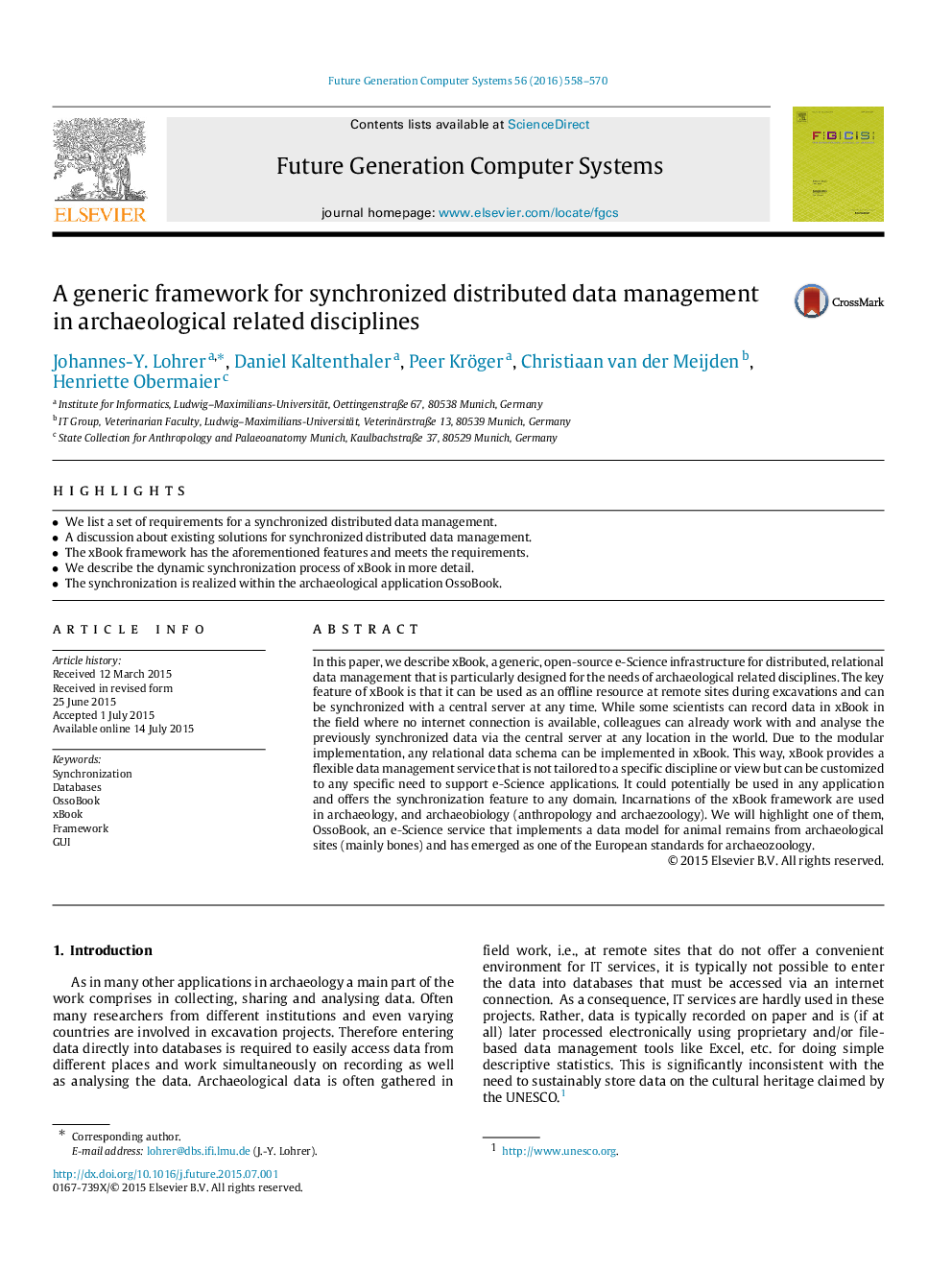| Article ID | Journal | Published Year | Pages | File Type |
|---|---|---|---|---|
| 424913 | Future Generation Computer Systems | 2016 | 13 Pages |
•We list a set of requirements for a synchronized distributed data management.•A discussion about existing solutions for synchronized distributed data management.•The xBook framework has the aforementioned features and meets the requirements.•We describe the dynamic synchronization process of xBook in more detail.•The synchronization is realized within the archaeological application OssoBook.
In this paper, we describe xBook, a generic, open-source e-Science infrastructure for distributed, relational data management that is particularly designed for the needs of archaeological related disciplines. The key feature of xBook is that it can be used as an offline resource at remote sites during excavations and can be synchronized with a central server at any time. While some scientists can record data in xBook in the field where no internet connection is available, colleagues can already work with and analyse the previously synchronized data via the central server at any location in the world. Due to the modular implementation, any relational data schema can be implemented in xBook. This way, xBook provides a flexible data management service that is not tailored to a specific discipline or view but can be customized to any specific need to support e-Science applications. It could potentially be used in any application and offers the synchronization feature to any domain. Incarnations of the xBook framework are used in archaeology, and archaeobiology (anthropology and archaezoology). We will highlight one of them, OssoBook, an e-Science service that implements a data model for animal remains from archaeological sites (mainly bones) and has emerged as one of the European standards for archaeozoology.
